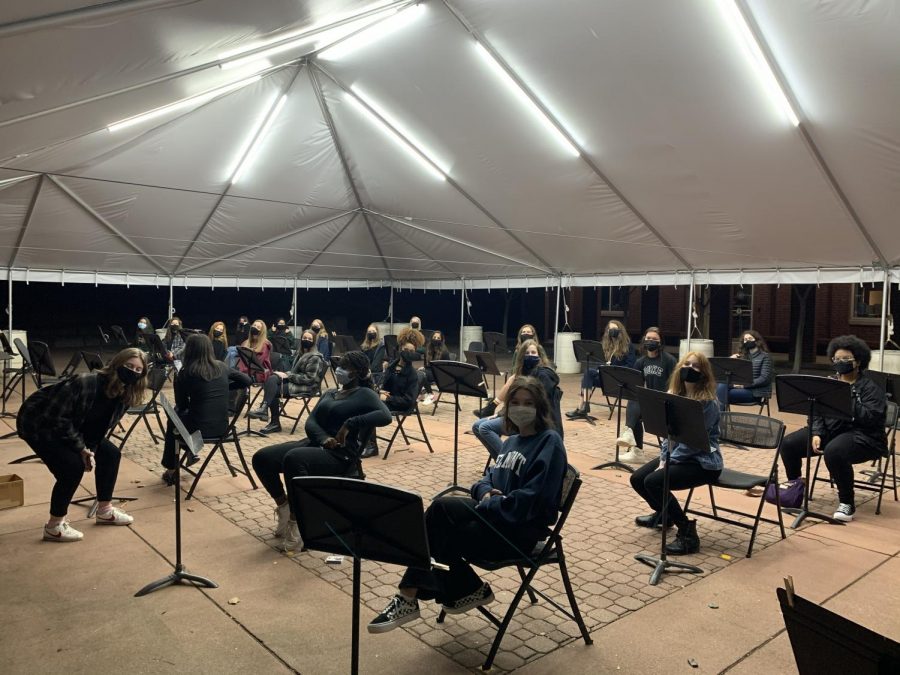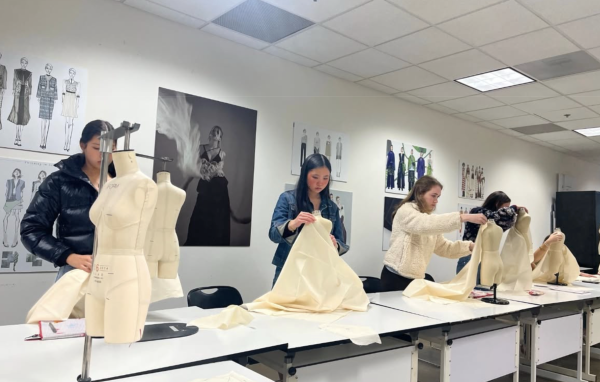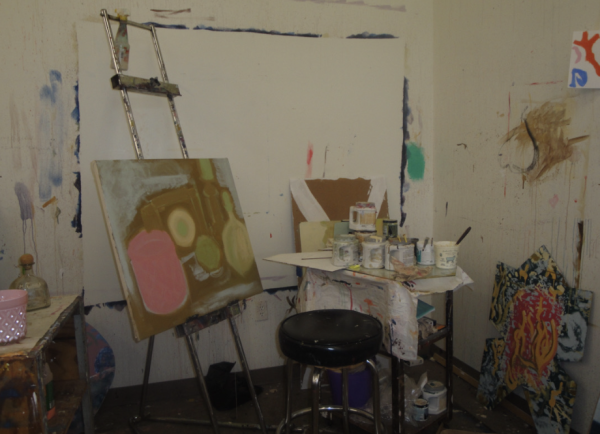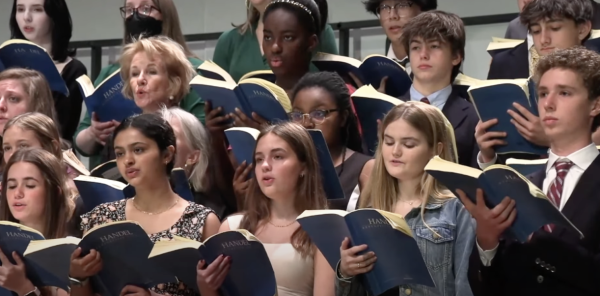MAC and WAC adapt to COVID-19 procedures
Photo credit Sarah Logie
WAC hosts an evening rehearsal, socially distant, in the tent on Love Patio.
The Westminster Men’s A Cappella (MAC) and Women’s A Cappella (WAC) groups have made a number of changes to their practices this school year, in response to the ongoing pandemic. Led by Upper School chorale directors Chris Walters and Jason Maynard, MAC and WAC have experienced substantial changes to their format in comparison to previous years, both in terms of rehearsals and in performances.
Both MAC and WAC began the school year with rehearsals over Zoom, which paralleled the virtual nature of classes. As Westminster transitioned back to in-person learning, however, the choirs began to rehearse for their first concerts on campus.
“Before the pandemic, we would have an hour and a half of rehearsal time,” said senior Pierce Roberts, one of the leaders of MAC. “This year, our rehearsals have been reduced to an hour-long rehearsal. Regardless, I think that we have been able to get a lot out of our rehearsals, and we are glad to be in person.”
While both groups have had great success with their altered rehearsals, the circumstances of the pandemic have presented a number of challenges for the singers.
“When we wear masks, as a singer, it’s hard because you can’t see the mouth formation and vowel shape,” said Walters, the faculty advisor for MAC and WAC. “It is much harder to communicate with another human when you have a mask on, which is a large part of what we do as chorale singers.”
Walters has taken big steps to secure the safety of singers in the larger school choir as well. He has ensured that members of the choir socially distance when rehearsing outside and wear masks that limit the possible inhalation of fabric. The rehearsal spaces also have a number of fans to promote ventilation, acting as an extra measure of safety. In addition, both faculty leaders and students have had to accommodate shifts in expectations as they receive new information about the virus.
“We have had to adjust on a daily and weekly basis,” said Walters. “We had to cut down the content of the concert, and we also lost programming since we can’t do overnight trips. I applaud my students for being willing to persevere through it.”
The choirs have recently been singing in the parking deck, where the students’ voices resonate in a similar way that they would in a cathedral in Europe.
“We have to be creative in finding new spaces,” said Walters. “Even though our current rehearsal space is a parking deck, we have to be willing and open to trying something new in this world.”
The music students have shown tremendous resilience, continuing to sing with masks in late summer weather and persevering despite each obstacle. Walters is still seeing the passionate desire to continue music making and to continue singing.
“It is not that I did not see resilience before in students, but it has been particularly evident right now to see our students day in and day out showing up and dealing with the stress of a normal Westminster student’s experience,” said Walters. “On top of that, they have continued to work really hard to make music and adjust to upended schedules.”
Although the pandemic put the community element of performance in jeopardy, the chorale singers and faculty advisors realized how essential art was to them.
“We turn to music and other art forms as a way to feel human, and that is really important,” said Walters. “I hope that everyone is more appreciative of art and music making, and maybe there will be a renewed interest in just how awesome it is to sing together, whether it is in a choir or in an a cappella group.”
Quarantine and isolation have caused many people to realize the importance of valuing time with others. Especially in a performing arts setting, where collaboration dictates the success of a performance, working with others has become more important than ever.
“At the end of day, we have to look out for each other,” said Roberts. “We have to make sure that everyone wants to be there and has a good time. If we try to prioritize the things like the sound, then we lose the important part of these communities, which is being together as a group.”
Due to continued storms and power outages in early November, MAC and WAC were unable to hold their first concert of the year. However, despite the many setbacks that both groups have faced, the musicians will no doubt continue to persevere and make music together as a community. Both groups are currently exploring whether or not they will be able to host their first concerts of the year in person.
“I hope that music making can play a strong role in helping people find grace and compassion and human connection, because that is how I think that we will get through these kinds of times together,” said Walters.




